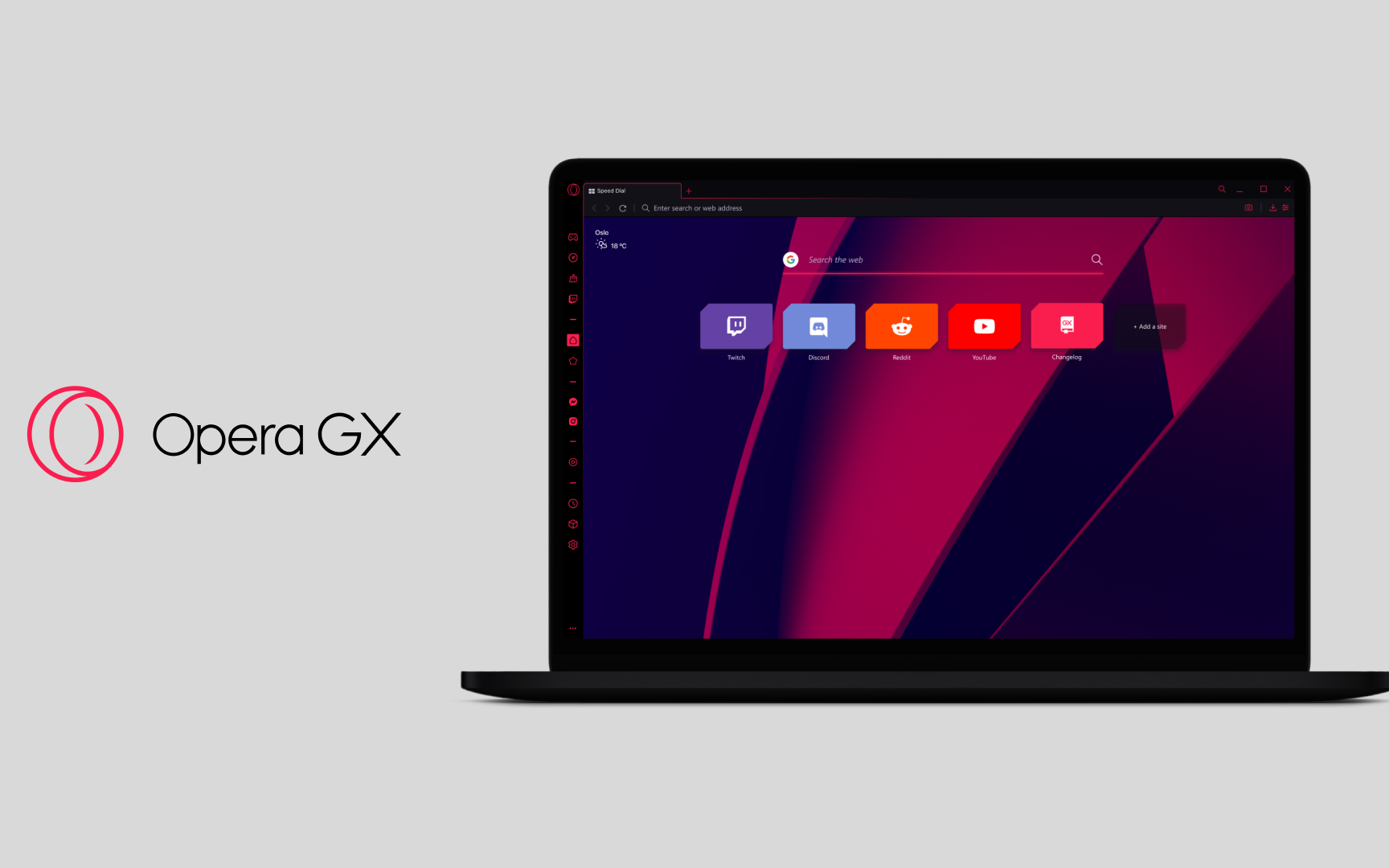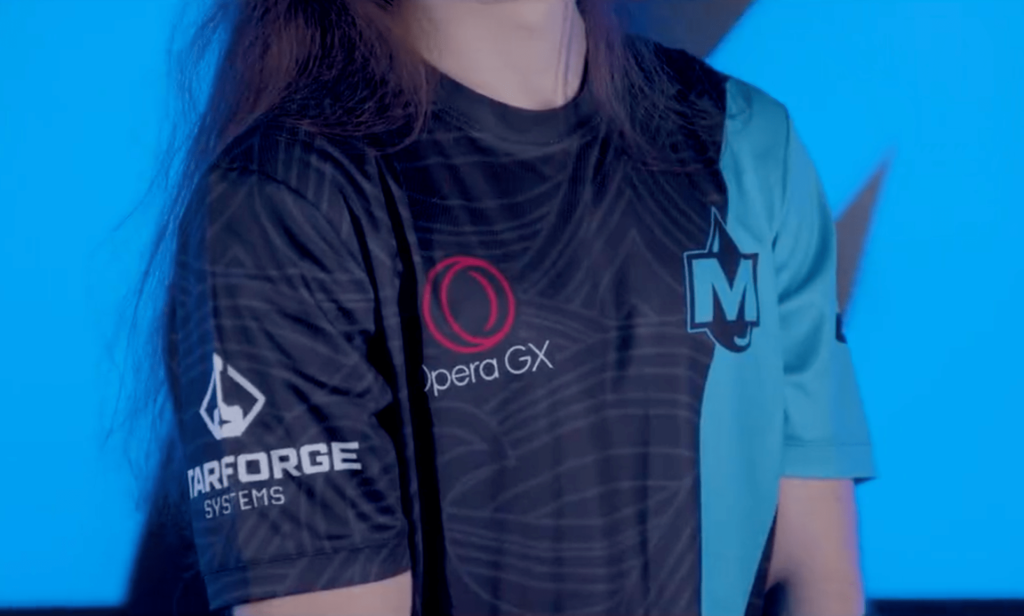
The list of products labelled as ‘built for gamers’ is almost endless.
Looking to capitalise on the growing cultural influence of gaming and esports, some products are built as a marketing ploy, complete with unique flavours or different packaging. With gaming and esports predominantly virtual in nature, it’s no surprise that technology companies have also looked to establish greater connections with gamers.
Among browser makers, one company in particular has decided to cater to video game lovers, with esports ecosystems, possibly, in its plans.
Opera’s browser for gamers is called Opera GX and is built from its standard product, Opera One, but with particular attention “on the little things,” Opera GX’s Product Director Maciej Kocemba told Esports Insider. The Norwegian company has a history of creating more focused experiences when it comes to web surfing to fill up niches left untouched by big names like Google.
“This project started as a ‘what if’ because we’re all gamers at the company,” said Kocemba. “We built it, put it on a laptop and carried it around Gamescom to get feedback. What we learned is that gamers want customisation so that’s exactly what we built.”
The foundation of GX may be from Opera’s everyday product, but the company believes its myriad of custom additions justifies its gamer-specific moniker. Two major features, without a doubt, are the possibility to limit the amount of processing power the browser requires (not to overburden the PC) and the amount of bandwidth it needs, so the connection stays strong when playing online.
Whilst tailored for gamers, Opera GX also has one eye on the esports world. This includes the browser dipping its toes into the esports ecosystem through a sponsorship with streamer-backed organisation Moist Esports. There are also some features that could bolster an esports fan’s experience.
With the push of a button, for example, it’s possible to detach a video from its webpage and put it anywhere else, overlaying any other page to keep a major esports event in the background while doing other things. The same window can be made transparent to “maximise screen real estate,” said Kocemba.
According to Kocemba, there is certainly more that Opera GX is looking to do in the industry. “With 25m monthly users, we’re always floating with the new things we can do and esports is a natural evolution for us, whether it’s just enjoying it through streaming or as a player.
“We’re not ready to share a roadmap now but don’t be surprised if these two worlds will collide in the future.”

Esports business models are intrinsically linked to streaming, whether that’s by utilising a roster of content creators or having a team’s game broadcast on various platforms. Opera GX seems to pride itself on creating a browser experience that is not only tailored to viewers, but streamers themselves.
Tabs can be muted by default to avoid copyright strikes. Plus, there is the removal of all search data to prevent any personal information from being inferable through browser history. “If you search for pizza while you’re live, people might guess your location based on the purple links (those you have already clicked on), so we take these things very seriously,” Kocemba explained.
Opera GX markets itself as the perfect companion to those who want to make a name for themselves in the competitive gaming community through streaming. That’s because it has integrations with hardware companies like Asus and MSI (both of which have sponsored esports stakeholders in the past). Opera GX also has customisable backgrounds and even music by The Berlinist, the authors of the soundtrack for acclaimed platform-adventure game GRIS.
“We hired gamer’s musicians to make the soundtrack of our browser,” said Kocemba. “We have full RGB support across peripherals with no extra programmes and even notifications for when a streamer goes live. This feature is particularly appreciated by small streamers even in the esports space because it helps them connect with their audience if they don’t have a strict schedule like the big names.”
When choosing a browser, however, it’s crucial to know what business model it’s using, how it’s treating data and what happens to someone’s search history.
GX Opera, for example, makes money through affiliation: “We have partner sites, in our start page for example, and if someone buys something from there we get a cut. We get money only if someone uses our product and enjoys the experience. It’s in our best interest if users stay with the GX and interact with it because we don’t sell anything.”

Being a Norwegian company, there are a lot of regulations Opera has to comply with on the privacy side. That’s why, during its settings, users are asked if they want to keep all of their data anonymous.
“We need anonymous data to build the product,” said Kocemba. “Not only do we have very strict laws to comply with, but we know personal data is a burden as there are a lot of things you have to do to protect it, store it, etc.
“On the other hand we need data to know what to implement and what to fix, so with anonymous data everything is easier to do.”
What may surprise many is that Opera GX is also a place where people can take their first steps into making games, not just playing them. In 2021 Opera acquired Yoyo Games, the authors of GameMaker Studio 2, a game engine for making 2D and 2.5D titles.
GameMaker is now free and integrated into Opera GX. What users make can also be published for free on GX’s platform. The best works are also highlighted in the GX corner, a section dedicated to game recommendations and suggestions “curated by a team of humans to make it as worthy of your time as possible.”
GX is among a small section of products that feel concretely made for gamers, and has the potential to become a part of the esports fans and professionals toolbox.
BLAST has jumped on this trend with an esports-focused viewing platform and there are a range of specifically designed esports and elite gaming peripherals in the sector. But there’s still an empty space on the software side that Opera GX could fill up, either through partnerships or by implementing even more competitive gaming-related features.


